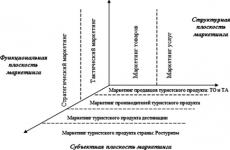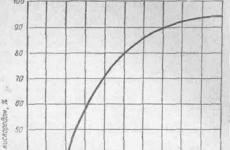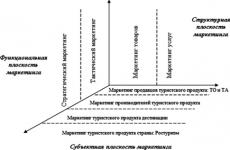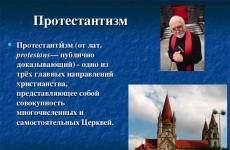He said that the desire for knowledge. The pursuit of knowledge is the best motivator of life! Gnoseology in philosophy
John Locke in his statement addresses the problem of the difficulty of comprehending the truth. He says that in order to obtain the most reliable knowledge, you need to expend a lot of effort and overcome many obstacles.
In order to discuss this problem, I consider it necessary to refer to the term and the basic provisions of truth. Truth is knowledge corresponding to the subject of knowledge. Its main criteria are compliance with the laws of logic, simplicity, economy of form, confirmation in practice. Truth is divided into absolute (undoubted, unchanging, once and for all established knowledge) and relative (incomplete, inaccurate knowledge corresponding to a certain stage in the development of society). The ultimate goal of any knowledge is to obtain truth, but its achievement is a very difficult process, as John Locke said. And I cannot disagree with him, because the possibilities of cognition depend on the historical conditions of their time and the level of development of culture, production, available means of observation and experiments. At each stage of cognitive activity, we receive incomplete, non-eternal knowledge, but as it is replenished, some relative truths are replaced by others, more complete.
As an argument, I want to cite the history of the development of ideas about the solar system. The first ideas about the universe were very naive: they used to think that there was a "firmament of heaven" to which the stars were attached, and the Earth was taken as the immovable center of the universe. Aristotle later believed that all celestial bodies move along an ideal circular path, but he still considered the Earth to be the center of the universe. The Aristotelian system of the world survived until the era of Copernicus, who made a revolution in natural science, when he developed the heliocentric system of the world. Copernican cosmology was developed by Giordano Bruno, defending the concept of the infinity of the universe. The teachings of Copernicus were later confirmed and developed by Galileo Galilei, Johannes Kepler: who discovered the laws of planetary motion, after Isaac Newton discovered the law of universal gravitation, substantiated the theory of motion of celestial bodies, and then M.V. Lomonosov discovered the atmosphere around Venus. Thus, knowledge was formed from more primitive to more complex and reliable.
The history of microbiology is described by Paul de Kruy in his book The Microbe Hunters. He talks in a light manner about the discoveries of microbiology from the 17th century to the beginning of the 20th. This example from the literature shows us well that the search for grains of truth, individual knowledge about the subject of study can drag on for centuries. The author, paying attention to the process of hard work of scientists who have devoted their lives to scientific searches and discoveries, shows us well how difficult it can be. These great discoveries laid the foundation for the fight against infectious diseases and saved many millions of human lives.
Thus, behind true knowledge there is always a lot of thought and hard work. The desire to find the truth has always been the main engine of human development.
The path to knowledge is not always easy. Some obstacles arise even at the stage of deciding to go to get knowledge. Persistence and hard work today is a feature characteristic of strong people, but many are used to getting what they want in the shortest possible time and are afraid of what needs to be put in any effort.
Religious knowledge must be received by every person, because due to his ignorance, he may incorrectly perform religious rites, and they will not be considered valid. Ignorance is not an excuse for improper performance of rituals (Namaz, Fasting, Hajj, etc.). Knowledge is acquired gradually. All knowledge is not acquired at once. The Qur'an tells us to be educators who teach people by slowly moving from a small amount of knowledge to more. You need to start with a minimum, understand and assimilate it, and then gradually move to a more complex level.

Some children have to overcome serious difficulties and show real courage to get to school.









Even hostilities between two warring countries do not become an obstacle for children who want to study and go to school no matter what.

In Colombia, the children of several families living in the rainforest, 65 km southeast of Bogotá, risk their lives to ride to school on ropes that connect the two sides of the village. Chinese children have to cross the rocky cliffs once a semester. In addition, they have to ford the cold waters of the river, then cross a 200-meter bridge and four narrow bridges. It takes them two days to travel to school. From such children you will not hear complaints about a short break or a lesson that is too long.
The lack of comfortable desks and clean classrooms does not stop children seeking knowledge either. Each morning, more than 50 underprivileged children attend the two-hour class held in New Delhi. Parents, due to lack of funds, cannot send their children to a regular school, but this does not prevent children from gaining knowledge. What replaces their classroom is under the railway bridge, their blackboard is a black rectangle painted on a concrete wall.







Such a great scholar, Imam Ash-Shafi'i, despite growing up in a poor family and his father died when he was still a child, he lived in difficult conditions, poverty and need, but this did not stop him from striving for knowledge and sciences. Such poverty forced him to write down his religious lessons on pieces of leather and palm leaves, since he did not have the money to buy paper. Indeed, he was very diligent and serious in seeking and acquiring knowledge, sincerely making every effort to improve his knowledge. He earned respect and honor, being in Mecca, he was given permission to give religious conclusions (fatua), despite his young age (he was then about 15 years old).
Our predecessors, from whom we received the knowledge of Shari‘ah along the chain, were very scrupulous in terms of acquiring knowledge about the words and deeds of the Prophet, peace be upon him. They strictly adhered to the important requirement in receiving knowledge along the chain from the Prophet, peace be upon him. Sometimes, in order to hear a Hadith from the lips of a trustworthy Hadith transmitter, they went on a long journey to the area where this person was. It is known, for example, that one of the companions of the Prophet Muhammad, peace be upon him, the pious waliy (saint) Jabir Ibn ‘Abdullah, may Allah grant him His Grace, overcame a month-long journey to hear only one of the Hadiths of the Prophet, peace be upon him!
The priority is to obtain knowledge of religion from reliable teachers.
Undoubtedly, everyone is obliged to acquire the obligatory minimum of religious knowledge and must teach this to their relatives. The Prophet Muhammad, peace be upon him, said, meaning: "The pursuit of knowledge is the duty of every Muslim." (Here refers to the desire for religious knowledge). He conveyed the saying to Imam Al-Bayhakiy.
Imam Ash-Shafi'iy said: "If the ignorant were justified because of their ignorance, then ignorance would be better than knowledge."
Strength of will. Winner Kelly's Self Management Guide
5.1. Openness to new knowledge is a sign of success
Knowledge is one of the most important and paramount pillars in human life. The more knowledge a person has, the stronger he stands on his feet and the more opportunities he has. Therefore, do not miss the chance to learn something new and useful, learn something you need.
It is knowledge, its quantity and quality, that brings a person a certain position in society, the respect of others, the opportunity to achieve success and not engage in hard physical labor. Life changes, values and foundations change, but only one thing remains unchanged - only one who constantly and tirelessly works on himself can achieve success in life.
Openness to new knowledge and the desire to learn what is useful at the moment is one of the main signs of successful people. The reality around us requires that we constantly engage in self-education if we want to achieve something in life and build a brilliant career. That is why the one who strives for knowledge and is not lazy to learn is successful. It is only important that a person has time and is able to learn different things, since one-sided development harms the personality more than helps it.
But striving for knowledge and being open to new things does not mean that you should absorb any information and in any quantities. Everything should be in moderation, because any extremes always spoil the final result. Knowledge is useful only when it is accompanied by understanding - simply swallowing and memorizing information does more harm than good. Yes, and it is impossible for one person to know absolutely everything - if only because initially he is inclined to any one field of activity. It is in the area that you are interested in, and it is worth deepening your knowledge.
This text is an introductory fragment. From the book There are few real violent ... Breakthrough technology in business and life author Shubin Vladimir Grigorievich From the book Ruthless Management. The real laws of personnel management author From the book Being a Business Leader. 16 success stories author Filippov SergeyThe makings of success As a child, I was a hooligan, but at the same time a lot of reading. He was quite athletic: first he was engaged in figure skating, gymnastics, swimming, then judo and sambo. In general, I did not like sports and now I do not. My coach said I was the Lord's fault
From the book Mindsight. The New Science of Personal Transformation by Siegel DanielSuccess Proportion My wife says I'm lucky. I agree, I was lucky that I got into Cisco. On the other hand, without my education, character, skills, I would not have been hired. Therefore, I believe that in this life I have achieved everything myself. Nobody pulled my hand. 80% mine
From the book Time in a Bottle by Falco Howard From the book Do not retreat and do not give up. My incredible story by Rensin David From the book 100 business technologies: how to take the company to the next level author Cherepanov Roman From the book Business Idea Generator. System for creating successful projects the author Sednev Andrey From the book Business and Life 3.0 [Now only up!] author Parabellum Andrey Alekseevich From the book How to Innovate by Prater Charles From the book Algorithm of Success. Ten Commandments author Shearing VictoriaThe author of the statement - the famous English Philosopher, a representative of empiricism and liberalism - John Locke in his statement touches upon the problem of comprehending the truth. He considers the understanding of how it is possible to comprehend the truth, one of the main difficulties facing the cognizers.
I agree with the author's point of view. Truth is knowledge corresponding to its subject, coinciding with it. Allocate absolute truth (knowledge that cannot be refuted) and relative (knowledge that depends on certain conditions, place and time of their receipt).
On the way to achieving absolute truth, there is a change of several relative truths.
An example is the idea of people about our planet in different periods of time. So, the ancient Greeks imagined the earth as a flat disk surrounded by the sea, then the first assumptions about the sphericity of the earth appeared; in the second century BC, Claudius Ptolemy created the geocentric system of the universe, and, finally, in the 16th century, Nicolaus Copernicus outlined his system of the world structure - heliocentric. So with the development of mankind, truths that were previously considered reliable were refuted and replaced by new ones.
To achieve an exhaustive knowledge of reality in any area requires many years of hard work in this area; for example, the history of chemistry. When a lot of open chemical elements appeared, it became necessary to classify them. Scientists in the first half of the 19th century tried to group elements according to their properties. Döbereiner's classification system (a combination of elements of a tirade with similar properties) and the Spiral of Shankurtu (a helix plot of elements arranged in ascending order of atomic weights) turned out to be imperfect. Then, in the 1860s, the first L. Meyer table appeared: It included 28 elements placed in six columns according to their valency. And finally, in March 1869, Mendeleev's periodic law of chemical elements was presented, which made it possible to substantiate the scientific classification of elements and their compounds, to establish a clear relationship between many chemical concepts. The proposed periodic system is still relevant today.
Thus, behind true knowledge there are always long years of reflection and hard work. The desire to find the truth makes humanity not stand still and develop.
Updated: 2017-11-06
Attention!
Thank you for your attention.
If you notice an error or typo, highlight the text and press Ctrl + Enter.
Thus, you will provide invaluable benefit to the project and other readers.
Useful material on the topic
- J. Locke "It is difficult to understand in what other way one can come to the truth and master it, if one does not dig and search for it like gold and a hidden treasure"
Of all the treasures, knowledge is the most precious of all, because it cannot be stolen, lost, or destroyed.
Indian saying
Knowledge is what elevates one person above another in the most essential way.
D. Addison
It's strange how much you have to know before you know how little you know.
Amer.
Who knows more, suffers more. Is there a tree of science - a tree of life?
D. Byron
Knowledge of facts is precious only because ideas are hidden in facts; facts without - rubbish for the head and memory.
V. Belinsky
Whoever fears knowledge is lost.
V. Belinsky
Smart among fools are always strange.
V. Belinsky
Man fears only that which he does not know; knowledge conquers all fear.
V. Belinsky
The greatest tragedy for a thinking person is the cooling of the passion for knowledge.
E. rich
The greatest enemy of knowledge is not delusion, but inertia. One error fights another, each one destroys its opponent, and out of the struggle truth is born.
G. Buckle
The only cure for superstition is knowledge. Nothing else can remove this plague spot from the human mind. Without knowledge, the leper remains unwashed and the slave unliberated.
G. Buckle
Knowledge is not an inert, passive visitor that comes to us whether we like it or not; it must be sought before it is ours; it is the result of a great and therefore a great sacrifice.
G. Buckle
True knowledge does not consist in familiarity with facts - this only creates a pedant, but in the ability to use facts - this creates a philosopher.
G. Buckle
Simplifying the complex is the most significant result in all branches of knowledge.
G. Buckle
The will that strives for knowledge is never satisfied with the finished work.
D. Bruno
The source of true knowledge is in facts.
P. Buast
We see little, we know
And happiness is given only to those who know.
I. Bunin
In human affairs, it is not the one who has lived longer, but the one who has observed more that understands.
F. Bacon
We draw wisdom from history; in poetry, wit; in mathematics, insight; in natural sciences - depth; in moral philosophy, seriousness; in logic and rhetoric - skill.
F. Bacon
The imaginary wealth of knowledge is the chief cause of its poverty.
F. Bacon
One should strive for knowledge not for the sake of disputes, not for the contempt of others, not for the sake of profit, fame, power or other base goals, but in order to be useful in life.
F. Bacon
It is easier to draw with a lot of knowledge than to be good at a few.
L. Vauvenargues
We know more useless things than necessary ones.
L. Vauvenargues
The more you read without thinking, the more you are sure that you know a lot, and the more you think while reading, the more clearly you see that you still know very little.
Voltaire
Knowledge of certain principles easily compensates for ignorance of certain facts.
K. Helvetius
Multi-knowledge does not teach the mind.
Heraclitus
We know for sure only when we know little; as knowledge grows, doubt grows.
I. Goethe
It is not enough just to gain knowledge; I need to find an app for them.
I. Goethe
What you do not understand does not belong to you.
I. Goethe
Who knows a lot is flexible; whoever knows one thing is proud. The first sees what he lacks, the second is like a rooster on a dunghill.
T. Gippel
He who hears nothing and knows nothing and does nothing belongs to the great family of marmots who have never been good for anything.
F. Goya
Ignorance of natural causes caused man to create gods; deceit turned them into something formidable.
P. Holbach
The source of knowledge is inexhaustible: no matter what success humanity acquires along this path, all people will have to seek, discover and learn.
I. Goncharov
Nobody can know everything.
Horace
Always - to learn, everything - to know! The more you know, the stronger you become.
M. Gorky
To prove to a person the need for knowledge is like convincing him of the usefulness of sight.
M. Gorky
Knowledge is the absolute value of our time...
M. Gorky
Not knowing is tantamount to not developing, not moving.
M. Gorky
There is no power more powerful than knowledge; a man armed with knowledge is invincible.
M. Gorky
A donkey who knows the way is worth more than a soothsayer who guesses at random.
V. Hugo
Just as rubles are made up of kopecks, so knowledge is made up of grains of what has been read.
W. Dahl
Many know-it-alls are not smart.
Democritus
Knowledge can be of two types. We ourselves know about the object, or we know where to find information about it.
S. Johnson
Anyone can steer a ship
When the sea is calm.
But whoever wants
Command them on a dangerous voyage,
Gotta know what sails
On a fine day, which ones to put in a storm.
B. Johnson
Knowing how things should be characterizes a man of intelligence; knowing what things really are characterizes an experienced person; knowing how to change them for the better characterizes a man of genius.
D. Diderot
Too much knowledge is just as bad as too little. Knowledge is memory. And the more it stores knowledge, the more problems are solved by simply retrieving them from memory. At the same time, thinking remains passive, which means it does not develop. But it is in the process of thinking that a person receives new knowledge, comprehends existing ones, finds ways and means of solving previously unknown problems.
V. Zubkov
Superficial knowledge is meaningless knowledge, taken on faith and mechanically deposited in memory.
V. Zubkov
Theory without practice is dead, practice without theory is blind.
V. Zubkov
Knowledge gives weight to a person, and actions give shine. However, most people can only look, not weigh.
T. Carlyle
And live and learn to old age.
Chinese proverb
A person who has great knowledge looks equally at the far and near, does not consider the small to be insignificant, and the big - to be huge, because he knows that the sizes of things are relative. He proves that the present and are one and the same, and therefore does not yearn for the distant past and does not try to grab the near present, because he knows that time never stops. He explores fullness and emptiness, and therefore, when he gains, he does not rejoice; when he loses, he does not grieve, because he knows that fate is impermanent. He clearly understands the path and therefore does not rejoice at his birth and does not consider his death a misfortune, because he knows that the end and the beginning succeed each other.
Whale.
He who knows nothing doubts nothing.
R. Cotgrave
One should always know the truth, speak sometimes.
Lao Tzu
To know much and not to present oneself as knowing is a moral high ground. Knowing little and presenting oneself as knowing is a disease. Only by understanding this disease can we get rid of it.
Lao Tzu
What we know is limited, and what we do not know is infinite.
P. Laplace
We find it hard to believe what lies beyond our horizons.
F. La Rochefoucauld
All knowledge comes from experience, from sensations, from perceptions.
V. Lenin
If I know that I know little, I will succeed in knowing more...
V. Lenin
If you stock up on patience and show diligence, then the seeds of knowledge sown will certainly give good shoots. The root of learning is bitter, but the fruit is sweet.
Leonardo da Vinci
The rapid accumulation of knowledge acquired with too little independent participation is not very fruitful. Scholarship can also give birth only to leaves, without bearing fruit.
G.Lichtenberg
It is certainly better not to study any thing at all than to study it superficially, because sound human reason, wishing to express its judgment about things, does not commit such blunders as semi-learning.
G. Lichtenberg
Knowledge is an experience compared with other experiences.
Ya. Lossky
Knowledge is gained not by fast running, but by slow walking.
T. Macaulay
The boundary of our knowledge seems certain to us, but the only thing that is certain in it is our ignorance.
M. Meterliik
The fullness of knowledge always means some understanding of the depth of our ignorance.
R. Milliken
It's nice to know that you've learned something!
molière
The scourge of man is imaginary knowledge.
M. Montaigne
Knowledge is a double-edged weapon that only burdens and can injure its owner if the hand that holds it is weak and does not know how to use it well ...
M. Montaigne
Knowing something by heart is the same as knowing nothing; it is to own what is given only for the storage of memory.
M. Montaigne
There is no desire more natural than the desire for knowledge...
M. Montaigne
The feeling of compassion is the beginning of philanthropy, the feeling of shame and indignation is the beginning of duty, the feeling of compliance is the beginning of the rules of conduct, the feeling of truth and untruth is the beginning of knowledge.
Mencius
Anyone can make discoveries, both the educated and the ignorant, with the difference that this latter will more often discover what was already discovered before him, but unknown to him.
V. Odoevsky
In every field of human knowledge there is an abyss of poetry.
K. Paustovsky
Knowledge is organically linked to human imagination. This seemingly paradoxical law can be expressed as follows: the power of imagination increases with the growth of knowledge.
K. Paustovsky
What good is it that you knew a lot, since you did not know how to apply your knowledge to your needs.
F. Petrarch
In a person or for a person, the fullness and degree of perfection of knowledge and self-consciousness is the basis and guarantee of his real power.
M. Petrashevsky
Who knows more, doubts more.
E. Piccolomini
Literacy is precious to us only as a road to development.
D. Pisarev
Knowledge and only knowledge makes a person free.
D. Pisarev
Superficial, shaky or limited knowledge, which does not destroy a single old delusion in a person's mind and does not enrich him with new ideas, is only an extra ballast for memory.
D. Pisarev
Very few people, and only the most remarkable ones, are able to simply and frankly say: “I don’t know.”
D. Pisarev
Knowledge is not something finished, crystallized, dead, it is always moving.
D. Pryanishnikov
A person would make fewer mistakes if he knew exactly what he did not know.
Publilius Sir
Knowledge is the only power that can be acquired if one does not possess it, power is power, and power is everything.
I. Rachel
To feel is to know.
J. Robinet
The main thing is not to accumulate as much knowledge as possible - the main thing is that this knowledge, great or small, belongs to you alone, to be drunk with your blood, to be the brainchild of your own efforts.
R. Rolland
A person is educated only by his own inner work, in other words, by his own, independent thinking, experiencing, re-feeling what he learns from other people or from books.
N. Rubakin
Since the world arose in darkness,
No one else on earth
Didn't give in to regret
About the fact that he gave his life to learning.
Rudaki
It is important to know not what is, but what is useful.
J. J. Rousseau
In general, people who know little talk a lot, and those who know a lot talk little.
J. J. Rousseau
Knowing good is more important than knowing much.
J. J. Rousseau
A person is inquisitive only to the extent of his enlightenment.
J. J. Rousseau
Ignorance is a bad way to get rid of trouble.
Seneca
Knowledge can be used in many ways, and depending on who uses it, it can be a real good or a real evil.
N. Serno-Soloveich
Knowledge, separated from justice and other virtues, appears to be knavery, not wisdom.
Socrates
There is only one god - knowledge and only one devil - ignorance.
Socrates
I know that I don't know anything.
Socrates
I'm getting old, but I'm always learning a lot everywhere ...
Solon
Every day in which you have not replenished your education with at least a small but new piece of knowledge for you ... consider it fruitless and irretrievably lost for yourself.
K. Stanislavsky
The thirst for knowledge, like the thirst for wealth, intensifies as we acquire more and more.
L. Stern
I learned much from my mentors, even more from my comrades, but most of all from my students.
Talmud
Knowledge is a tool, not a goal.
L. Tolstoy
Knowledge humbles the great, surprises the ordinary, and puffs up the little man.
L. Tolstoy
Knowledge is knowledge only when it is acquired by the efforts of one's thought, and not by memory.
L. Tolstoy
In this life, who knows more, trusts words less.
T. Wilder
A head filled with fragmentary, incoherent knowledge is like a pantry in which everything is in disorder and where the owner himself will not find anything; the head, where there is only a system without knowledge, is like a shop in which all the boxes have inscriptions, but the boxes are empty.
K. Ushinsky
You can expand your knowledge only when you look your ignorance straight in the eye.
K. Ushinsky
Art is art with some help from the other.
E. Fage
Knowledge helps to see the ambiguity of what is happening and its internal inconsistency.
L. Feuchtwanger
We carry our own truth, which is a combination of many truths borrowed from others. That is why others should be well known.
S. Philip
Knowledge is based on three things: much to see, much to learn, and much to suffer.
N. Foscolo
Any knowledge expresses not only the known, but at the same time contains an indication of the unknown.
S. Frank
We want to know in order to live; and to live means, on the other hand, to live not in blindness and darkness, but in the light of knowledge. We seek living knowledge and a knowing, knowledge-illumined life.
S. Frank
To digest knowledge, one must absorb it with gusto.
A. France
Any knowledge has a value only when it makes us more capable of action. If one could imagine omniscience without omnipotence, this would be the most terrible torment of hell.
Tsetves
Knowledge, far from justice, deserves the name of dexterity rather than wisdom.
Cicero
Knowing the laws does not consist in remembering their words, but in understanding their meaning.
Cicero
Knowledge excites love: the more you become acquainted with science, the more you love it.
N. Chernyshevsky
Ignorance of nature is the root of those unknown forces before which the human race has so long trembled, and of those superstitious creeds which have been the source of all its calamities.
N. Chernyshevsky
Ignorance should never boast: ignorance is impotence.
N. Chernyshevsky
Knowledge is a refuge and shelter, comfortable and necessary for us in our advanced years, and if we do not plant a tree while we are young, then when we are old we will have no shade to hide from the sun.
F. Chesterfield
Between a man whose knowledge is made up of experience and observation of the characters, customs and habits of people, and a man who has drawn all his learning from books and put what he read into a system, there is as great a difference as between a well-trained horse and a donkey.
F. Chesterfield
Superficial knowledge does not bring satisfaction or honor, but it often brings dishonor or simply puts one in a ridiculous position.
F. Chesterfiad
Everyone knows and everyone understands only fools and charlatans.
A. Chekhov
It is not surprising that a large amount of knowledge, not being able to make a person smart, often makes him vain and arrogant.
A Chekhov
Least of all we know, firstly, what we have understood by intuition; secondly, what they experienced from their own experience, faced with different phenomena; thirdly, what we understood not from books, but thanks to books, that is, thanks to the reflections to which they prompted us.
I. Chamfort
The amateur takes the dark for the deep, the wild for the powerful, the indefinite for the infinite, the senseless for the supersensible.
F. Schiller
Faith and knowledge are two scales: the higher one, the lower the other.
A. Schopenhauer
The only way that leads to knowledge is activity.
B. Show
The less we know, the more we suspect.
G. Shaw
Much knowledge is needed in order to be able to hide one's ignorance before others.
M. Ebner-Eschenbach
Knowledge exists to be shared.
R. Emerson
Our knowledge is the accumulated thought and experience of countless minds.
R. Emerson
The most important sign of complete knowledge of a person who has reached perfection is the ability to quickly use knowledge.
Epicurus






